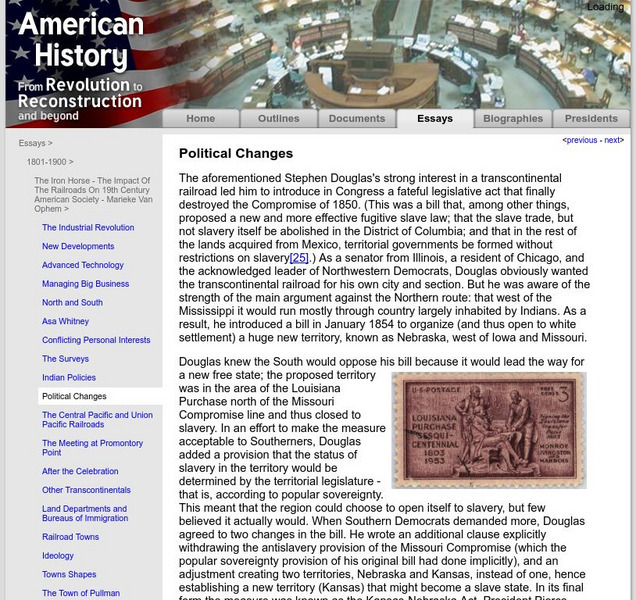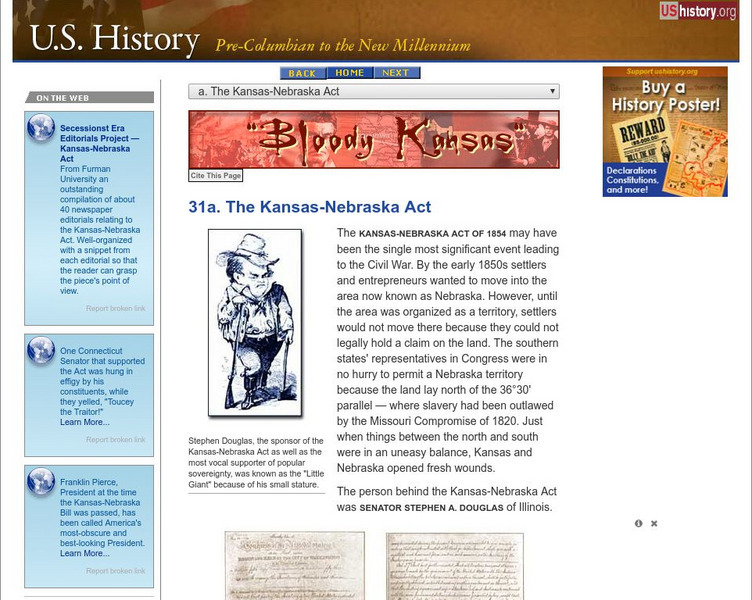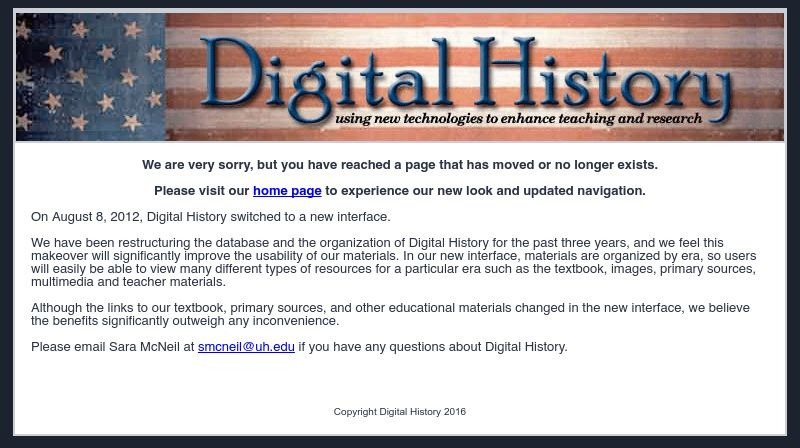Center for History Education
Lincoln and the Republicans: The Cause of the War?
In today's political rhetoric, many forget the pivotal role the Republican Party played in the causes of the Civil War. The party's formation was the final straw for Southerners who saw the enslavement of people of African descent a...
Curated OER
The First American Party System: Events, Issues, and Positions
Students examine and discuss the philosophical differences that arose during the Constitutional Convention and how these differences played a role in the formation of the first political parties.
Curated OER
Social Studies Review for Grade 5 (5.1)
In this social studies review for grade 5 (5.1) learning exercise, 5th graders answer 25 multiple choice questions in a standardized test format about U.S. history.
Digital History
Jeffersonians in Office
If you're looking for a description of the major happenings of the presidencies of both Thomas Jefferson and James Madison, then this is the resource for you. Similar to a textbook reading, this learning exercise offers a great deal of...
Curated OER
What are the Issues?
Seventh graders complete political analysis activities. For this political analysis lesson, 7th graders discuss party platforms and research party issues for their party's candidate's positions. Students complete an issues organizer and...
Curated OER
The Election Is in the House: 1824: The Candidates and the Issues
Learners list some changes in presidential election laws and/or procedures since 1796, and cite examples from presidential campaign materials from 1824.
Curated OER
The Kansas and Nebraska Act
Students use a primary source of a political cartoon to set the context for a lesson. They answer key questions in writing or orally. Students conduct a class discussion about the issue to stimulate higher order thinking skills like...
Other
Republican Party: Our History
Read the first few paragraphs of this article to find out about the formation of the Republican Party in 1854 and how it affected the political scene in the last part of the 1850s.
University of Groningen
American History: Essays: The American Whig Party (1834 1856)
This article presents the second part of the history of the Whig Party to find out why the issue of slavery brought about its demise.
Ohio History Central
Ohio History Central: Bull Moose Party
Find out about the spilt in the Republican Party during the campaign of 1912, which resulted in the formation of the Bull Moose Party, the progressive party which selected Theodore Roosevelt as its candidate.
University of Groningen
American History: Essays: The Iron Horse: Political Changes
From a lengthy essay on the history of the railroad in the United States. This section describes the dramatic political changes that took place with the passage of the Kansas-Nebraska Act in 1854. This led to the formation of the...
Independence Hall Association
U.s. History: The Kansas Nebraska Act
Read about the essential repeal of the Missouri Compromise, which had established which states could be slave and which would be free for thirty years, with the rancorous passage of the Kansas-Nebraska Act. See who supported it and why,...
Digital History
Digital History: Civil War in Kansas [Pdf]
The Compromise of 1850 did not solve all the slavery issues in the territories, which was not surprising. Read about the Kansas-Nebraska Act, put forth by Sen. Stephan Douglas, who proposed that the issue be decided by popular...
Digital History
Digital History: Antislavery Timeline
A timeline of actions tied to the prohibition of or ending of slavery from the meeting of the Continental Congress in 1774 to John Brown's raid on Harper's Ferry in 1859.
ClassFlow
Class Flow: Political Divisions
[Free Registration/Login Required] This flipchart details the growing political divisions in the United States in the decade before the Civil War. It includes information on the election of 1856, the Dred Scott Decision, the Lincoln...














![Digital History: Civil War in Kansas [Pdf] Website Digital History: Civil War in Kansas [Pdf] Website](https://d15y2dacu3jp90.cloudfront.net/images/attachment_defaults/resource/large/FPO-knovation.png)

